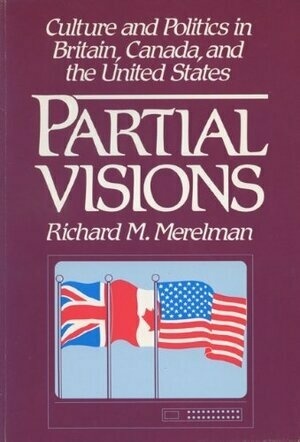
A pathbreaking study of political culture in the United States, Britain, and Canada, Partial Visions demonstrates how popular culture--expressed through television soap operas and comedies, civics and history textbooks, magazine advertisements, and corporate publications and recruitment leaflets--subtly deflects and suppresses democratic political action. Richard Merelman argues that political messages embedded in popular culture weaken the division between public and private and between society and the individual. These "partial visions" of democracy are idealized yet inequitable, revelatory yet distorted. As a result, issues that might galvanize useful group conflict do not emerge, and the full potential for public participation in a liberal democracy remains unrealized. Britain, Canada, and the United States share a liberal political culture but differ in their historical evolution and in the structure of their institutions. Each country, Merelman suggests, has developed a distinctive popular culture that shapes public opinion and stifles political debate in nationally specific ways. Different rhetorical devices and metaphors operate in each nation, he points out; in Britain, for example, the monarchy and party system serve as symbols of political reconciliation between the individual and the collectivity. Characterizing the United States as a culture of "institutionalized individualism" and Canada as a culture of emotionally tepid group conflict, Merelman finds Britain's culture of group-based political debate the most successful in encouraging democratic participation. Drawing on symbolic anthropology, poststructuralist literary theory, and positivistic analyses of attitudes and media influence, Merelman conducts a controlled comparison of media representations, political discourse, and public opinion, using rich, complex sets of quantitative and qualitative data . He concludes that culture is not reducible to institutional interests but is intelligible as a whole structure; furthermore, culture can and sometimes does change the contours of political conflict.